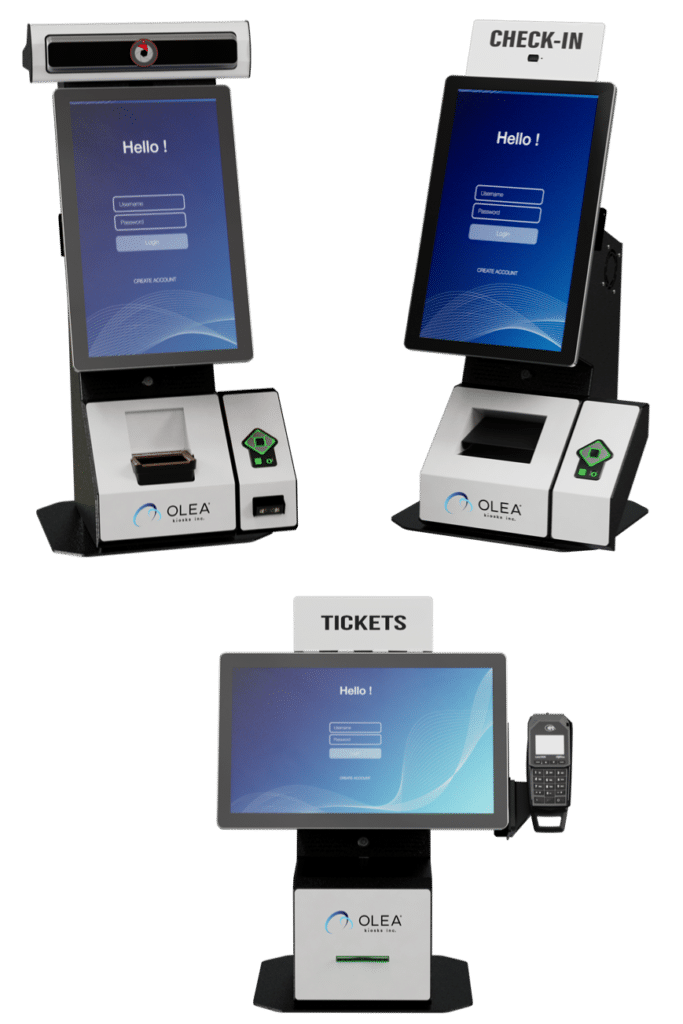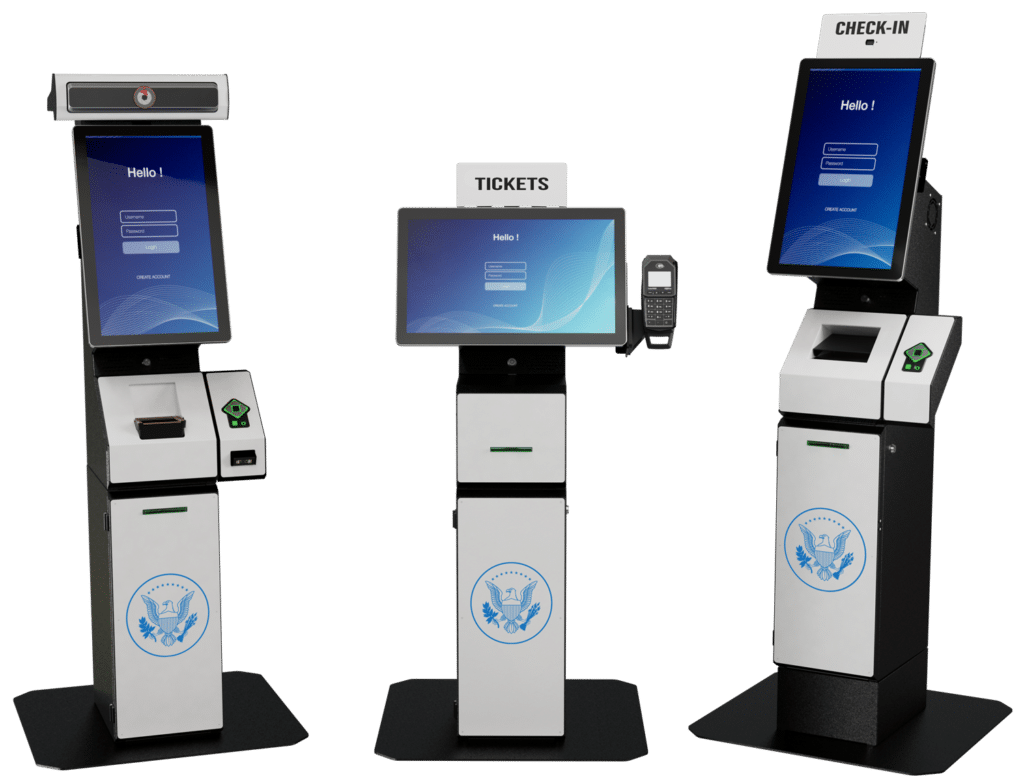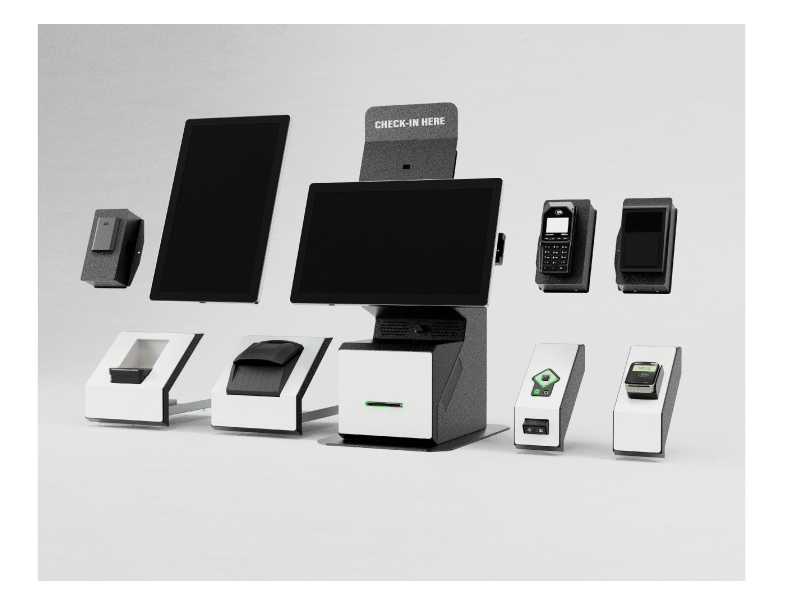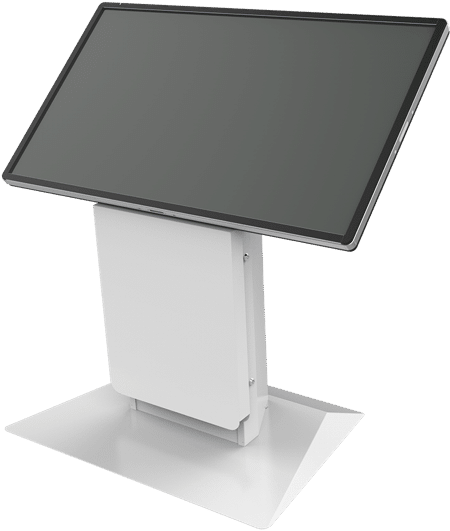Today, businesses are always looking for ways to stay ahead, particularly as it relates to technology adaptation or the next evolution in their digital transformation. Rapid prototyping has emerged as a key strategy, allowing companies to quickly turn ideas into tangible models for testing. This approach is essential for fostering innovation and efficiency in product development.
It’s also essential for growth, exploring new markets, and staying ahead of competitors. Rapid prototyping offers businesses the speed and adaptability they need.
Olea’s HYPERMODULAR™ Kiosk is our answer to the needs of rapid prototyping. This kiosk is not just a tool; it’s a hub for creativity, turning concepts into reality. It combines speed, flexibility, and accuracy, helping businesses quickly iterate designs and respond to market trends. The intent behind the Hypermodular Kiosk is to streamline product development and encourage ongoing innovation.
Understanding Rapid Prototyping
Rapid prototyping is a group of techniques used to quickly fabricate a scale model of a physical part or assembly using three-dimensional computer-aided design (CAD) data. It’s primarily used for testing aspects of a design before committing to large-scale production. This process allows designers and engineers to visualize, evaluate, and make iterative changes to their designs efficiently.
Rapid prototyping has evolved significantly since its inception in the late 1980s. Initially, it was used mainly in the automotive and aerospace industries for creating models and parts quickly. As technology progressed, it became more accessible and cost-effective, leading to broader adoption across various sectors like medical, consumer products, and architecture.
The first Apple iPhone was the most notable use of rapid prototyping. The ability to create and test multiple design iterations rapidly was crucial in refining the iconic product.
The Benefits of Rapid Prototyping for Organizations Building Self-Service Kiosks
Speed in Product Development
Rapid prototyping significantly accelerates the design and development process of self-service kiosks. By quickly turning concepts into tangible models, organizations can iterate and refine designs much faster than traditional methods. This speed is crucial in a market where consumer preferences and technology standards are continually evolving.
Cost-Effectiveness Compared to Traditional Methods
Traditional prototyping can be expensive and time-consuming, particularly for complex devices like self-service kiosks. Rapid prototyping reduces costs by minimizing the need for multiple physical prototypes. This efficiency is vital for organizations wanting to develop and deploy kiosks within a tight budget and timeframe.

Enhanced Creativity and Experimentation
Rapid prototyping encourages experimentation and creative design solutions. For self-service kiosks, this means the ability to explore various form factors, possibly different materials, or brackets to enhance the user interface without the constraints of prolonged production cycles. This promotes innovation, leading to more user-friendly and aesthetically pleasing kiosk designs.
Improved Collaboration Among Teams
The rapid prototyping process facilitates better communication and collaboration across product and customer teams. Design, engineering, and marketing teams can work closely, using prototypes to visualize
and discuss ideas more effectively. For self-service kiosks, this collaboration ensures that the final product meets all technical specifications and user requirements.
Better Risk Management Through Early Detection of Design Flaws
One of the advantages of rapid prototyping is the ability to identify and rectify design flaws early in the development process. This early detection is crucial for self-service kiosks, where functionality and durability are paramount. Addressing issues early on reduces the risk of costly changes and delays later in the production process, ensuring a more reliable and user-friendly final product.
HYPERMODULAR™—The Ultimate Tool for Rapid Prototyping
The HYPERMODULAR™ was designed with rapid prototyping in mind. It can deliver numerous configurations for proof-of-concept and ideations to help expedite time to market. It can be configured as a desktop kiosk or a free-standing kiosk with even more room for peripherals.
With interchangeable face panels and sidecars, this kiosk delivers flexibility with a variety of peripherals including barcode scanners, RFID readers, payment devices, and more that can be installed to the left or right of the touchscreen.
Olea’s HYPERMODULAR™ ecosystem allows for subdivision of the kiosk in logical ways which provides the ability to deliver different configurations quickly and easily. This unit is designed to include several optional components to allow organizations to include their unique peripheral selections as they design hardware and software simultaneously.
The HYPERMODULAR™ ecosystem was created to address long development time for access control solutions. As a result, a host of optional components can be placed in the unit:
- Barcode Scanner
- Card Reader
- ID Scanner
- Camera
- Passport Scanner
- Iris Scanner
- Document Scanner
- Fingerprint Reader
- RFID Reader
- Payment Device
- Receipt Printer
- Room Key Dispenser
- Audio NAV Device
Implementing Rapid Prototyping in Your Organization
If you’re looking to expedite your time to market and implement rapid prototyping in your organization, here are some steps to help you:
1. Assessment and Planning
Evaluate your current product development processes and identify areas where rapid prototyping can be integrated.
Develop a clear plan with goals, timelines, necessary resources, and expected outcomes.
2. Set up the Necessary Infrastructure
Include any hardware and software.
Ensure a suitable workspace for prototyping activities.
3. Integrating with Design and Development
Modify your workflows to incorporate rapid prototyping.
Establish protocols for testing and feedback integration.
Common Challenges and Misconceptions
It’s important to manage expectations to educate stakeholders about the realistic capabilities and limitations of rapid prototyping. Set clear expectations around what you’re hoping to achieve.

Balancing speed and quality is necessary. Both should come into play. Emphasize the importance of quality and detail in prototypes, even in fast-paced environments.
Cost management should be a part of your rapid prototyping program. Understand the cost-benefit analysis part and demonstrate the long-term savings despite some initial investment in technology. And the benefits of getting to market faster must be taken into account.
To create a culture that embraces rapid experimentation and innovation, while overcoming the other common challenges and misconceptions is important if you want to compete at the greatest level. If you’re interested in understanding how Olea can help you with rapid prototyping to help you elevate your go-to-market game, contact us for more information.


